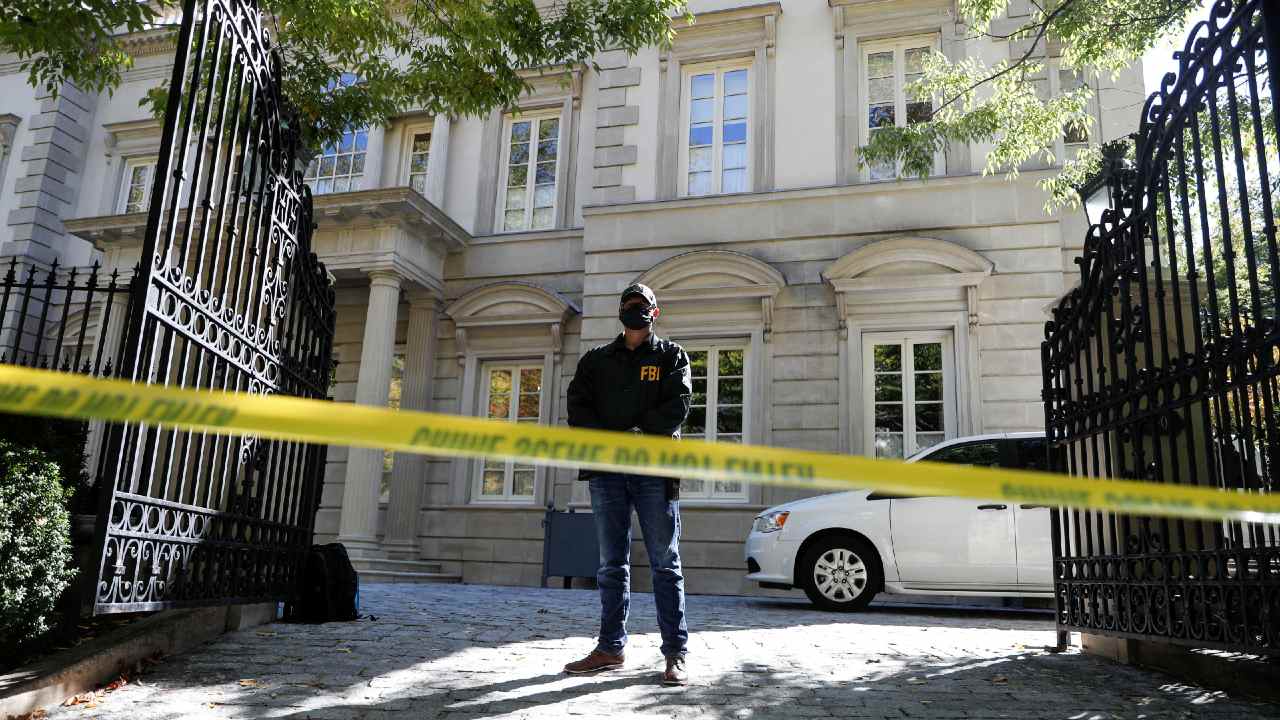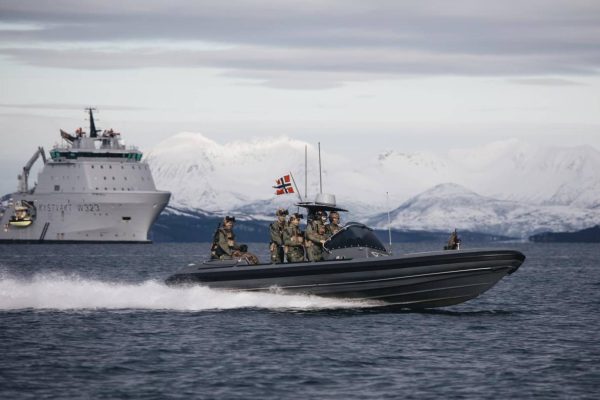In the past weeks there has been a whirlwind of stories exposing the Kremlin’s successful post-Cold War infiltration of the West. Arrests, jailings, and news stories have highlighted allegations of the involvement of high-profile individuals and institutions (sometimes unwittingly) to assist Russian intelligence and Kremlin-linked oligarchs. Taken as a whole, it paints a picture of a West subverted by cash.
In back-to-back breaking stories, a former senior FBI official was arrested over his dealings with Oleg Deripaska, one of Vladimir Putin’s closest oligarchs; a German was held on suspicion of passing intelligence to Russia; and questions were asked in Parliament in London about reports that the government had helped Wagner Mercenary Group founder Yevgeny Prigozhin bypass its own sanctions so he could sue a critical journalist.
The events offer a snapshot into the decades of Russian influence operations that have infiltrated sensitive institutions and sought to embrace and compromise high-profile Western figures.
The FBI arrested one of their own, former agent Charles McGonigal, on January 23 along with his alleged co-conspirator Sergey Shestakov, for working on behalf of Deripaska, who they referred to as the “the big guy” and “the client.” McGonigal is a senior FBI counter-intelligence officer who is accused of approaching Deripaska to campaign for his removal from sanctions lists in return for cash. Deripaska is sanctioned by the US Treasury for operating on behalf of the Russian government and is alleged to have “bribed a government official, ordered the murder of a businessman and had links to a Russian organized crime group.” He was charged with sanctions evasion by the US last year.
McGonigal worked for more than two decades at the FBI in its Russian counterintelligence, organized crime, and counterespionage units, and had a role in the investigation into Russian interference in the 2016 US election. According to the indictment, while he headed the FBI New York counterintelligence unit, McGonigal secretly worked with Shestakov, a retired diplomat from the Russian Ministry of Foreign Affairs, and had contacts with another Foreign Intelligence Service (SVR) agent.
In another high-profile espionage case, German authorities arrested a man, identified only as Arthur E, at Munich airport on January 22 as he returned from the US. He is suspected of passing highly sensitive information to Russia on his own behalf as well as for German intelligence officer Carsten L., who was arrested last month. On January 19, a Swedish court sentenced a senior employee of its counter-intelligence service to life in prison and his brother to 10 years for spying for Russia for more than a decade.
An Italian navy captain was held after allegedly selling confidential documents to a Russian military officer, while in Bulgaria several people were arrested, including three defense ministry officials, over suspicions of spying for Russia. The authorities also arrested a Russian-born couple on suspicion of spying in November. In addition, Norway, Poland, and the Netherlands arrested alleged GRU agents last year.
The warning signs have been there for a long time in many European countries. A 2020 Parliamentary report detailed extensive Russian influence in the UK, and stated: “[Russian] money was . . . invested in extending patronage and building influence across a wide sphere of the British establishment – PR firms, charities, political interests, academia, and cultural institutions were all willing beneficiaries of Russian money, contributing to a ‘reputation laundering’ process. In brief, Russian influence in the UK is ‘the new normal’, and there are a lot of Russians with very close links to Putin who are well integrated into the UK business and social scene, and accepted because of their wealth.” Very senior UK politicians from both parties were linked to wealthy Russians, and the issue has continued to rumble on since the outbreak of all-out war.
Meanwhile, Germany has seen mass arrests and 150 search warrants executed after the uncovering of a plot to overthrow the government and install a monarchy. Birgit Malsack-Winkemann, a former member of parliament for the far-right AfD party, which has long been supported by Russia, was among those held.
Putin’s spokesman, Dmitry Peskov, quickly denied Russian involvement and said it was an internal German matter. Russia’s denials are often confirmations, and a short while later it was revealed that the partner of coup organizer Prince Heinrich XIII, a Russian woman identified as Vitalia B, was asked to approach Moscow on Heinrich’s behalf. It also emerged that the prince met at least once with Russian diplomats at a consulate in Germany.
Meanwhile, OpenDemocracy published a story alleging that the UK government enabled Wagner’s Evgeny Prigozhin to circumvent sanctions in 2021 and launch a legal case against Eliot Higgins, founder of the Bellingcat investigations collective. Bellingcat has developed a fearsome reputation for identifying Russian intelligence operations and agents operating across Europe and beyond.
Sanctions designed to prevent financial dealings with Prigozhin were waved through by the UK Treasury, and special licenses were issued to allow Prigozhin to pay for legal action against Higgins, the website said.
The licenses enabled a British law firm handling the case to accept direct wire transfers from Prigozhin in Russia, despite the sanctions and Wagner’s long list of bloody interventions across Syria, Libya, the Central African Republic, Mali, Latin America, and Ukraine. UK Treasury minister James Cartlidge refused to comment on the specific case but told Parliament the process for allowing sanctioned people to pay legal fees is being reviewed.
European countries are on heightened alert for sanctions-busting and are urgently working to root out Russian spies and collaborators among their intelligence services, state agencies, and armed forces. With NATO states and Russia in open conflict — if not war — this is clearly an urgent issue.
The war in Ukraine has for now derailed Putin’s strategy and made working with the Russians less palatable in the West than previously. It may even be that, as during the Cold War, association with Russia’s bloody, imperial regime now carries an aura of shame.
It is clear that oligarchs are no longer welcome in the salons of Paris, Washington, and London, and it will be a long time before politicians again want to be seen anywhere near them.
The Soviet Union collapsed in part because it was a closed state cut off from financial dealings with the West. As governments identify and apprehend alleged traitors, the Kremlin once again looks to have been isolated despite its huge illicit investments.
Olga Lautman is a non-resident senior fellow at the Center for European Policy Analysis (CEPA), the host of the Kremlin File podcast , and an analyst/researcher focusing on Russia, Ukraine, and Eastern Europe.
Europe’s Edge is CEPA’s online journal covering critical topics on the foreign policy docket across Europe and North America. All opinions are those of the author and do not necessarily represent the position or views of the institutions they represent or the Center for European Policy Analysis.





